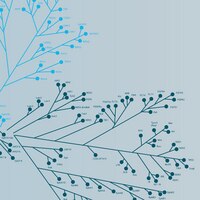Activation of the MAP kinase homologue RK requires the phosphorylation of Thr-180 and Tyr-182 and both residues are phosphorylated in chemically stressed KB cells.
Doza, Y N, et al.
FEBS Lett., 364: 223-8 (1995)
1994
Mostra il sommario
A MAP kinase homologue, termed the reactivating kinase (RK), lies in a signalling pathway which mediates cellular responses to stress. Here we demonstrate that the stress-induced activation of the RK in human KB cells is accompanied by the phosphorylation of Thr-180 and Tyr-182, and that the phosphorylation of both residues is required for the activation of this enzyme. | 7750576
 |
SB 203580 is a specific inhibitor of a MAP kinase homologue which is stimulated by cellular stresses and interleukin-1.
Cuenda, A, et al.
FEBS Lett., 364: 229-33 (1995)
1994
Mostra il sommario
A class of pyridinyl imidazoles inhibit the MAP kinase homologue, termed here reactivating kinase (RK) [Lee et al. (1994) Nature 372, 739-746]. We now show that one of these compounds (SB 203580) inhibits RK in vitro (IC50 = 0.6 microM), suppresses the activation of MAPKAP kinase-2 and prevents the phosphorylation of heat shock protein (HSP) 27 in response to interleukin-1, cellular stresses and bacterial endotoxin in vivo. These results establish that MAPKAP kinase-2 is a physiological RK substrate, and that HSP27 is phosphorylated by MAPKAP kinase-2 in vivo. The specificity of SB 203580 was indicated by its failure to inhibit 12 other protein kinases in vitro, and by its lack of effect on the activation of RK kinase and other MAP kinase cascades in vivo. We suggest that SB 203580 will be useful for identifying other physiological roles and targets of RK and MAPKAP kinase-2. | 7750577
 |















